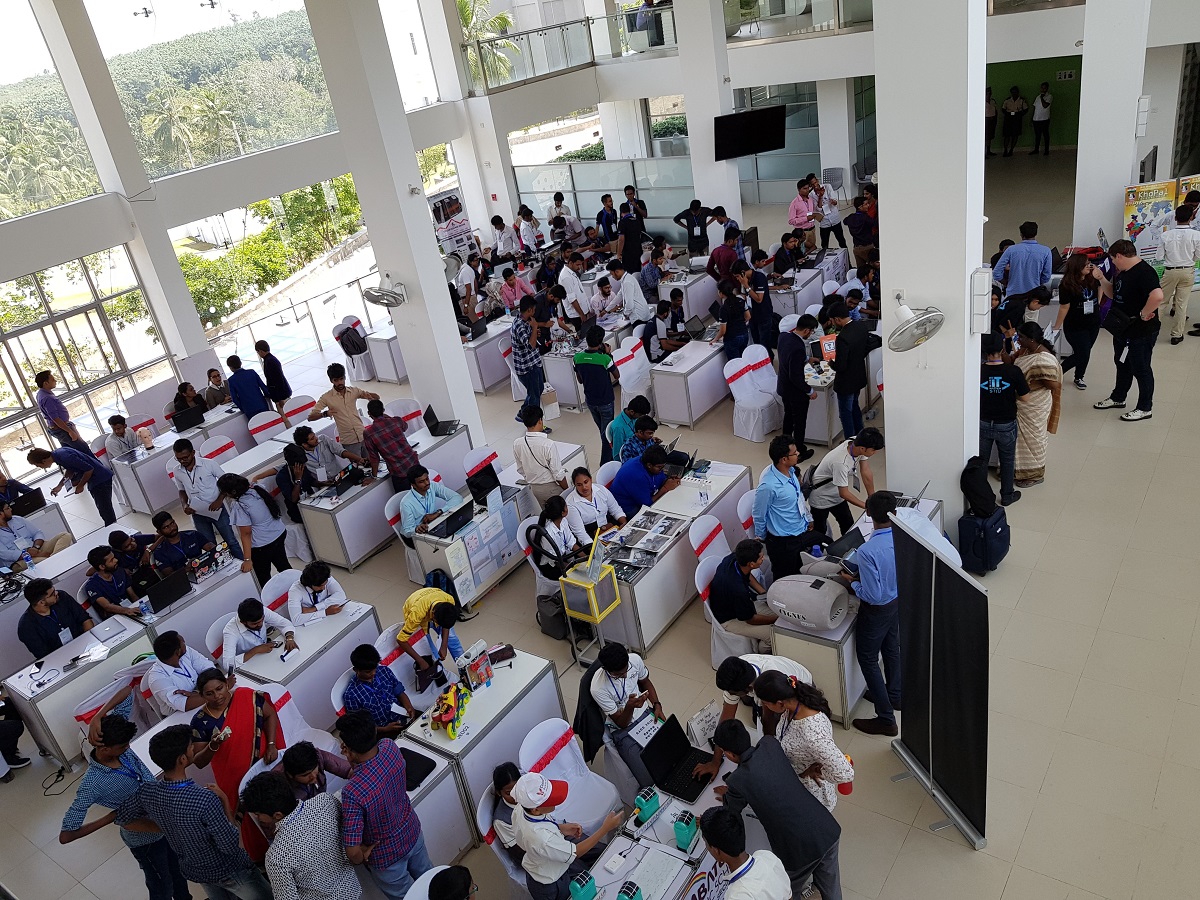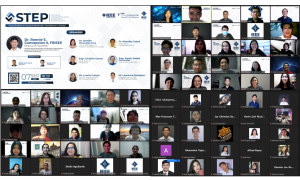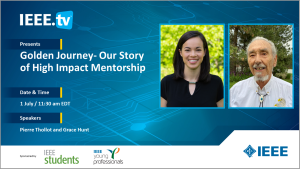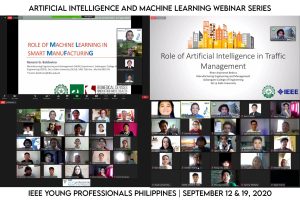IEEE SS12 International Project Competition and Maker Fair 2018 was jointly organised by IEEE Sri Lanka Section and IEEE Education Society Madras Section.
The final event of this competition was held on September 8th and 9th, 2018 at the NSBM Green University, Sri Lanka with the participation of 300+ local and international competitors, 50+ invitees including eminent IEEE leaders, 100+ visitors, and 60+ dedicated volunteers. Undergraduates and school students from nine different countries in the Asia and Africa regions competed under four tracks for two days – Innovation Challange, Maker Fair, Junior Einstein Competition and Virtual Track.
The four tracks were placed to capture different ideas to address social issues through social innovations. The theme ‘EMPATHY TO ENGINEERING: SOLUTIONS FOR MACRO ISSUES’ catered for a wide array of fields. This, in turn, addressed issues inline with United Nations Sustainable Development Goals, such as poverty and famine, disaster management and first aid, special needs, women safety, healthcare, illiteracy, sustainable clean and energy and smart cities – to name a few. This was the main reasons for the IEEE Humanitarian Activities Committee(HAC) being the Platinum sponsor of IEEE SS12 2018 as the whole competition was in line with the goals and vision of IEEE HAC.
????Innovation Challenge:
Innovation Challange was held to capture the innovations of undergraduates of the region. Hence, pilot competitions were held in each country and the winners of these pilots were selected for the final competition. Sixteen teams participated for the finals representing eight countries – Sri Lanka, India, Bangladesh, Pakistan, Thailand, Uganda, United Arab Emirates and Afghanistan. Judges of the competition were Mr. Chris Doering, Mr. Divyanshu Verma & Prof(Mrs). Dileeka Dias and the track was chaired by Mr. Abilash Praveen.
Winner of the competition was IC06 – Invento from MES College of Engineering, India, first runner-up was IC02 – Tech Guys from KCG College of Technology, India and the second runner-up was IC16 – Team Multispectral from the University of Peradeniya, Sri Lanka.
???????? Maker Fair:
Maker Fair is a competition and an exhibition which was a platform for undergraduates of the region to showcase their social innovations in the aforementioned theme. A call for proposal was made for Maker Fair and the participants were selected through these proposals. Further to that, best-performing projects from each pilot competition held were given the opportunity to be a part of the Maker Fair, if they were not selected for the Innovation Challange. Thirty-Four teams representing various institutions from Bangladesh, India, Thailand and Sri Lanka competed at this competition. The innovations were judged by (Eng.) Nalin Karunasinghe, Dr. Zia Ahmed and Prof. Parkash Lohana and the track was chaired by Mr. Navaneethakrishnan Ramanathan.
Winner of the competition was MF12 – AR Vidhya from Indian Institute of Information Technology, Nagpur, India, first runner-up was MFP35 – Technocrats from University of Moratuwa, Sri Lanka and the second runner-up was MFP05 – Smart Energy Meter using GSM from Kumaraj College of Engineering Technology, India.
???????? Junior Einstein Competition:
Following up the same structure as the Maker Fair, Junior Einstein Competition was held to showcase the social innovation of school children, in the age group under 19 years. Twenty Eight teams representing various schools from Bangladesh, India and Sri Lanka competed in this competition. The innovations were judged by Dr. P. A. Manoharan and Mr. Jehan Wijesinghe and the track was chaired by Dr. M. Alagumeenaakshi.
Joint winners of the competition were JE010 – Dude – personal companion from Mahatma Montessori K. K. Nagar, India and JE039 – Royal Inventors from Royal College, Sri Lanka. Joint first runners-up were JE011 – Disabled Person in the Field of Agriculture from Mahatma Montessori Baba Building, India and JE033 – Team Code Monarchs from S. Thomas’ College Mount Lavinia, Sri Lanka. Joint Second Runners-up were JE012 – Galaxy Blasters from Coimbatore Public School, India and JE029 – Tim Berners Lee from Bharath Vidya Mandir, India.
???? Virtual Track:
Virtual Track was held for the participants who cannot reach the venue physically and were invited to present their projects online. There were 60 registrations for the Virtual Track and 20 Teams were selected for the finals.
Winner of the competition was Team Orion Avionics and Electronics from the University of Dhaka, Bangladesh, first runner-up was Team HELIX from Mangalam College of Engineering, India and the joint second runners-up were Team THERMO from COEP/DY PATIL, India and Team AISSMS COE from AISSMS COE Pune, India.
…
This vibrant event concluded after recognizing the aforementioned social innovations which may be a part of the change the world is striving for.
Let us inspire the future generations next year, see you at the IEEE SS12 2019 in Thailand!
Article by Chanaka Hettige, Competition Coordination Co-Chair, IEEE SS12 2018
Tags:IEEE Education SocietyIEEE Education Society Madras sectionIEEE Sri Lanka sectionIEEE SS12Innovation






